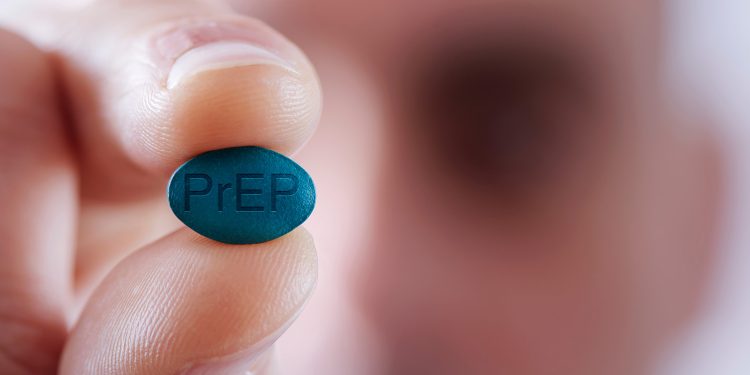Minister for Health, Simon Harris announced today (Wednesday, 9 October) that the government will introduce a new public access programme for Pre-exposure prophylaxis, better known as PrEP. The programme will roll out in 2020.
The introduction of publicly funded PrEP programme is a significant advancement in preventing HIV infection. The announcement has been welcomed by Teva Pharmaceuticals Ireland (‘Teva’), the company who first introduced PrEP to community pharmacies in Ireland in December 2017.
The decision to provide a public access programme comes in the aftermath of HSE research, published last week, which found a high awareness of PrEP at 86% [iii] amongst men who have sex with men in Ireland. This figure is a substantially higher figure than most European countries.
Despite a greater awareness of PrEP, only 4% [iv] of those surveyed confirmed they were using PrEP. But 49% of those surveyed also said there were likely to use PrEP if it was available and affordable. The findings suggest that today’s public access programme will meet an unmet demand.
A formal PrEP programme in place, as previously recommended by the Health Information and Quality Authority, would allow for a safe, effective and cost-saving environment.
PrEP in Ireland
In December 2017, Teva launched a generic version of the medication (Emtricitabine/Tenofovir disoproxil Teva). The entry of a generic into the Irish market lead to a more affordable price for PrEP, it also expanded patient access by making it available through community pharmacy for the first time, where it is available subject to a doctor’s prescription.
However, PrEP up until now has been available only to private patients, excluding patients reliant on GMS or Drug Payments Schemes. Today’s decision will now change that.
About PrEP
PrEP has been shown to significantly reduce the risk of HIV infection through sex, particularly for those deemed at risk, such as gay and bisexual men, and transgender women, but also for heterosexual men and women.
PrEP was first launched in the United States in 2012 and since then has been made available in multiple healthcare jurisdictions across the globe as part of wider national and municipal HIV prevention strategies. The medication works to prevent HIV from establishing infection inside the body [v].
Two large clinical trials found that PrEP taken daily reduces the risk of HIV infection by 86% [vi] [vii]. However, many experts view this figure to be a conservative estimate and believe the real rate of risk reduction to be much higher[viii].
Comment by Teva’s Generics Director Paul Neill:
“The introduction of a PrEP programme represents a landmark decision in reducing new HIV infections in Ireland, by making the drug more available and affordable.
“Up to this point, access to PrEP for Irish patients has been restricted and based on their capacity to pay. Today’s announcement will hopefully end that inequality. Access to PrEP will now be based on need rather than financial means.
“The decision is also an important statement on the value of preventative healthcare versus after-the-fact treatment. At a time of stretched health budgets, when our health services have so many competing priorities, medicines such as PrEP can make a huge contribution to keeping people healthy and in reducing healthcare costs.
“Further work is now needed to increase education and awareness of PrEP, to ensure that patients have a better understanding of the healthcare regime which must support PrEP, usage such as regular sexual health testing. Teva will also work to expand awareness and knowledge on PrEP.
“Teva, as Ireland’s largest generic medicines company, strongly supports making medicines more affordable and accessible. That today’s decision, underpins these objectives, is particularly welcome”.
[iii] EMIS-2017 Ireland Reports: The European MSM Internet Survey 2017 (EMIS-2017) http://gayhealthnetwork.ie/research/
[iv] EMIS-2017 Ireland Reports: The European MSM Internet Survey 2017 (EMIS-2017) http://gayhealthnetwork.ie/research/
[v] PrEP, Centres for Disease Control and Prevention, https://www.cdc.gov/hiv/basics/prep.html
[vi] Pre-exposure prophylaxis to prevent the acquisition of HIV-1 infection (PROUD): effectiveness results from the pilot phase of a pragmatic open-label randomised trial – McCormack, et al, The Lancet, 2016 – https://www.thelancet.com/journals/lancet/article/PIIS0140-6736(15)00056-2/fulltext
[vii] Efficacy, safety, and effect on sexual behaviour pf un-demand pre-exposure prophylaxis for HIV in men who have sex with men: an observational cohort study, Prof. Jean Michel Molina, MD, July 2017 –https://www.thelancet.com/journals/lanhiv/article/PIIS2352-3018(17)30089-9/fulltext
[viii] Pre-exposure prophylaxis to prevent the acquisition of HIV-1 infection (PROUD): effectiveness results from the pilot phase of a pragmatic open-label randomised trial – McCormack, et al, The Lancet, 2016 – http://www.thelancet.com/journals/lancet/article/PIIS0140-6736(15)00056-2/abstract









